Related Research Articles

Isadore "Dore" Schary was an American playwright, director, and producer for the stage and a prolific screenwriter and producer of motion pictures. He directed one feature film, Act One, the film biography of his friend, playwright and theatre director Moss Hart. He became head of production at Metro-Goldwyn-Mayer and replaced Louis B. Mayer as president of the studio in 1951.

Clifford Odets was an American playwright, screenwriter, and actor. In the mid-1930s, he was widely seen as the potential successor to Nobel Prize–winning playwright Eugene O'Neill, as O'Neill began to withdraw from Broadway's commercial pressures and increasing critical backlash. From January 1935, Odets's socially relevant dramas were extremely influential, particularly for the remainder of the Great Depression. His works inspired the next several generations of playwrights, including Arthur Miller, Paddy Chayefsky, Neil Simon, and David Mamet. After the production of his play Clash by Night in the 1941–42 season, Odets focused his energies primarily on film projects, remaining in Hollywood until mid-1948. He returned to New York for five and a half years, during which time he produced three more Broadway plays, only one of which was a success. His prominence was eventually eclipsed by Miller, Tennessee Williams, and, in the early- to mid-1950s, William Inge.

Ralph Forbes was an English film and stage actor active in Britain and the United States.
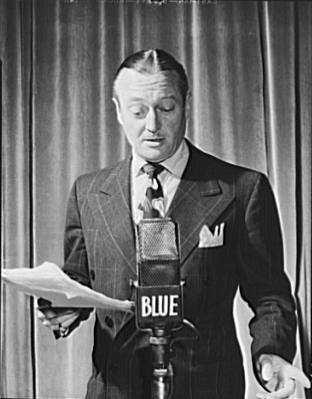
Edmund Sherbourne Lowe was an American actor. His formative experience began in vaudeville and silent film.
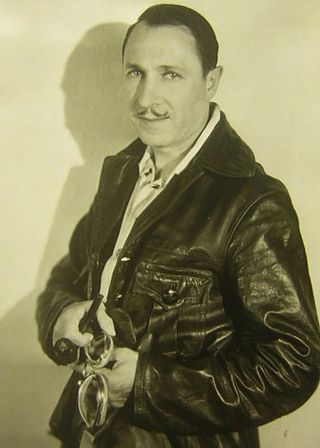
Armand David Kali(s)z was an American stage and film actor of the silent film and early sound period of the 1930s. Prior to that, he was an actor in vaudeville and on the legitimate stage.

Greta Meyer was a German actress in motion pictures beginning in the silent film era.

Hobart Cavanaugh was an American character actor in films and on stage.

Vince Barnett was an American film actor. He appeared on stage originally before appearing in more than 230 films between 1930 and 1975.
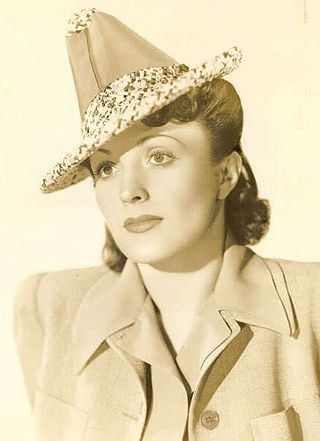
Mary Katherine Linaker was an American actress and screenwriter who appeared in many B movies during the 1930s and 1940s, most notably Kitty Foyle (1940). Linaker used her married name, Kate Phillips, as a screenwriter, notably for the cult film The Blob (1958). She is credited with coining the name "The Blob" for the movie, which was originally titled The Molten Meteor.
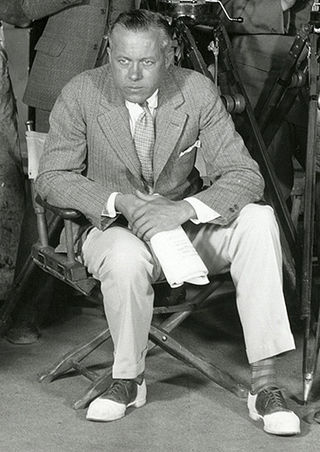
Nick Grinde was an American film director and screenwriter. He directed 57 films between 1928 and 1945.
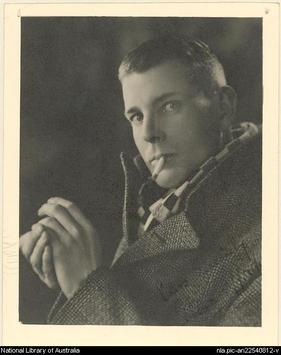
Malcolm R. Afford known as Max Afford, was an Australian playwright and novelist. He created the fictional hero Jeffrey Blackburn.

Bradley Page was an American film actor. He appeared in more than 100 films from 1931 to 1943.
Isabel Dawn was an American screenwriter, actress, and journalist active primarily in the 1930s and 1940s.
Gertrude M. Purcell was an American screenwriter, playwright, and stage actress known for her work on films like The Invisible Woman and Destry Rides Again.
Doris Malloy (1901–1955) was an American screenwriter active during the 1920s through the 1940s.
Anne Morrison Chapin was an American playwright, actress, and screenwriter.

Beatrice Banyard was an American screenwriter and actress active in the late 1930s and early 1940s.
Rose Caylor was a Russian-American screenwriter, playwright, actress, and journalist known for her work in the U.S. in the 1920s through the 1940s. She was married to filmmaker and journalist Ben Hecht.
Paul Perez was an American screenwriter active primarily during the 1920s and 1930s; he wrote for both English- and Spanish-language films over the course of his career, and often worked on Westerns. He also had several credits as an actor and editor.
David Silverstein was an American screenwriter and journalist who worked at MGM, Universal, and Columbia in the 1930s and 1940s.
References
- 1 2 "9 May 1934, Page 10 - The Brooklyn Daily Eagle at Newspapers.com". Newspapers.com. Retrieved 2019-02-18.
- ↑ "22 Jul 1934, 17 - The Morning Call at Newspapers.com". Newspapers.com. Retrieved 2019-02-18.
- ↑ "12 Jun 1934, Page 19 - Pittsburgh Post-Gazette at Newspapers.com". Newspapers.com. Retrieved 2019-02-18.
- ↑ "18 Nov 1934, Page 49 - The Cincinnati Enquirer at Newspapers.com". Newspapers.com. Retrieved 2019-02-18.
- ↑ "20 Dec 1935, Page 14 - Pittsburgh Post-Gazette at Newspapers.com". Newspapers.com. Retrieved 2019-02-18.
- ↑ "20 Jun 1935, 8 - The Daily Standard at Newspapers.com". Newspapers.com. Retrieved 2019-02-18.
- ↑ "Dramatists Play Service, Inc". www.dramatists.com. Retrieved 2019-02-18.